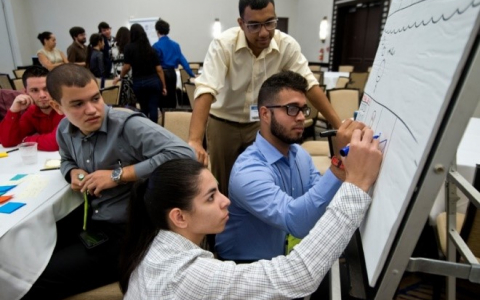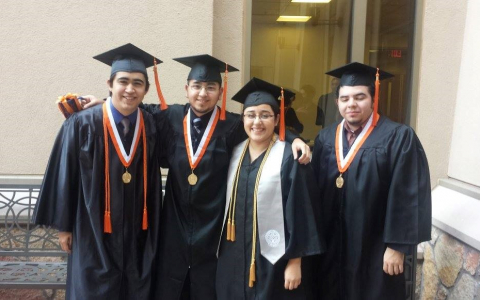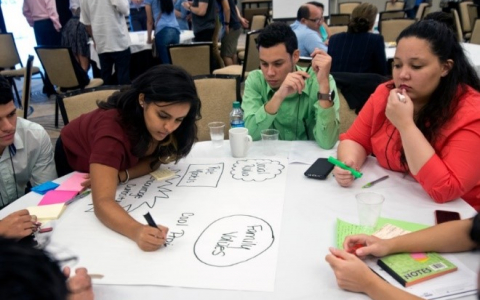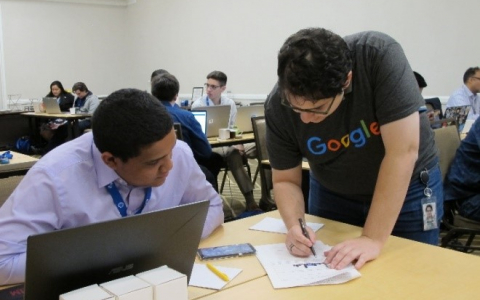CAHSI Signature Practices
CAHSI consists of structured, academic networks centered on student success in computing and established, effective relationships with a wide variety of organizations and partners. Together these networks and relationships were the results of shared resources, adoption, and dissemination of effective practices and policy. Since its beginning, CAHSI has established three reinforcing activities, or Signature Practices, that were studied and shown to be effective practices. We have included the CAHSI-Google problem-solving courses because these have been preparing students to enhance their problem-solving skills and prepare for the competitive workforce.
All the signature practices are designed to be equitable and inclusive. To learn more, please visit Library CAHSI Literature.
Affinity Research Group (ARG)

![]()
The Affinity Research Group Model (ARG) is a set of practices built on a cooperative team framework to support the creation and maintenance of dynamic and inclusive research groups. Students learn and apply the knowledge and skills required for research and cooperative work in an ARG. Members share a core purpose, and the research group is designed to emphasize the conscious and explicit development of students’ disciplinary knowledge, research abilities, and team skills. An ARG deliberately designs activities aimed toward developing students’ disciplinary knowledge, research abilities, and team skills. This evidence-based model has been adopted across the country and in various disciplines.
Fellow-Net

![]()
CAHSI views student fellowships and scholarships as a powerful resource in attracting students into graduate studies toward a doctorate. Our strategy is to bring awareness to students early in their academic career about the essential elements in a competitive fellowship package, and to ensure that students engage in activities that ultimately lead to successful academic outcomes. This workshop guides students on preparing competitive applications through hands-on activities and critical review of successful and unsuccessful fellowship packets. Through the support of Fellow-Net, CAHSI students have successfully secured awards from an array of competitive fellowships offered by various agencies and organizations.
Peer-Led Team Learning

![]()
A proven strategy for retention, PLTL provides an active learning experience for students and creates leadership opportunities for undergraduates. The PLTL model engages teams of six to eight students in learning sessions guided by a peer leader. Peer leaders are select students who have performed well in the class and who have completed a leadership training. Outcomes for undergraduate students including improve their learning, developing team working skills, and refining problem-solving skills. The PLTL effort improves academic performance and retention in the “gatekeeper” courses (i.e., courses that limit a student from advancing in higher level courses and possibly the major).
CAHSI-Google Problem Solving Course


Professors from CAHSI created three problem solving (PS) courses over a period of two years. The courses were developed with consistent, deep collaboration with Google technical staff and software engineers, which included contribution of problems and challenges, and remote coaching and feedback to students. The one and two credit hour courses are designed to allow students more flexibility in their degree plans and to build students’ knowledge in problem solving, as well as in other critical areas, such as discrete mathematics and cybersecurity vulnerabilities. The courses are: PS 1- Introduction to Problem Solving, PS2 -Computational Problem Solving, and PS 3-Algorithmic Problem Solving.


